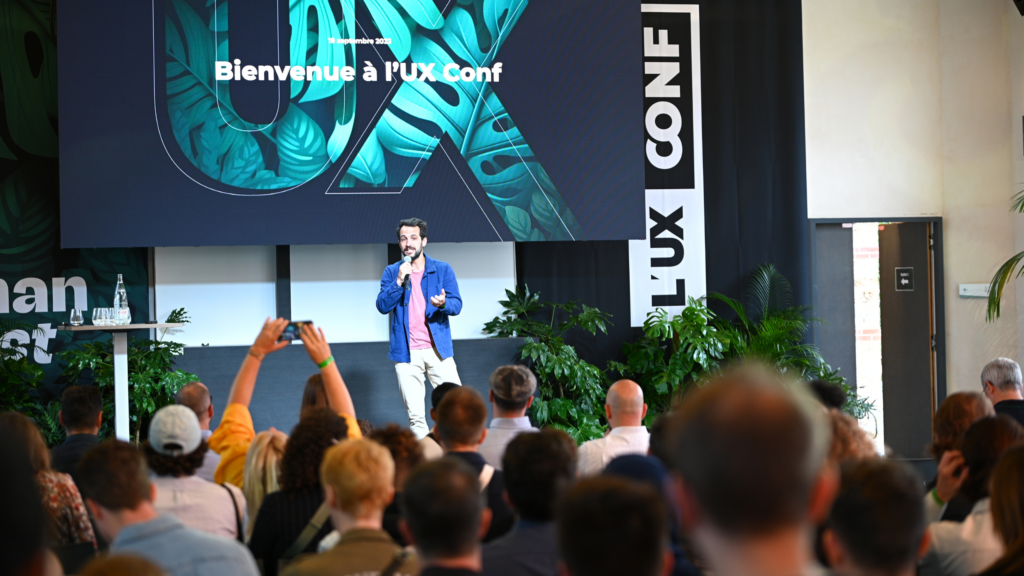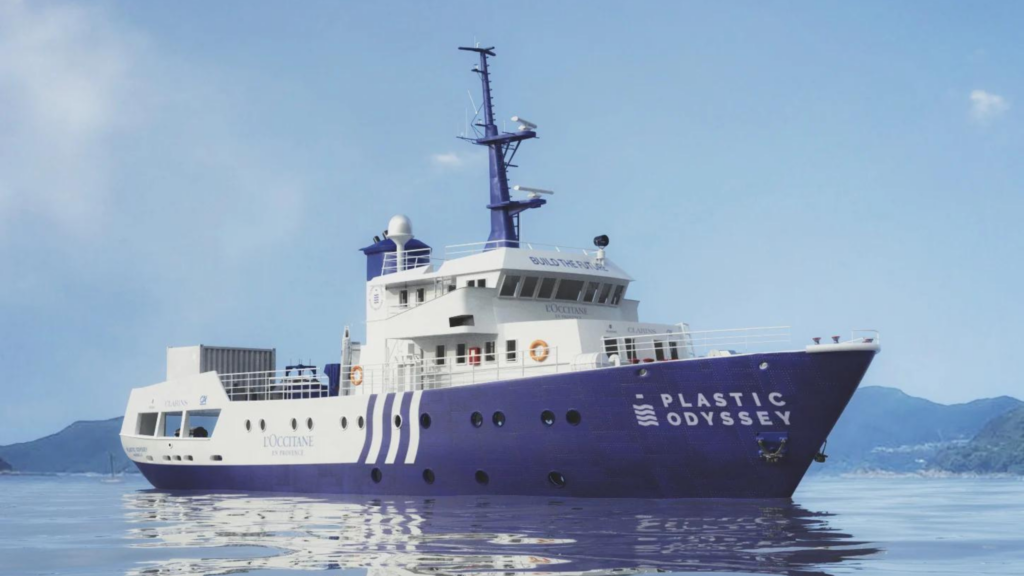This article retraces the speech given by Benjamin de Molliens during the first edition of UX-Conf – Human First, who evokes his “adventure towards sobriety”.
Benjamin de Molliens, a 35-year-old Breton, now based in Marseille, marked the start of the first edition of UX-Conf. It addresses a subject of crucial importance: the place of responsible and ethical digital technology in our contemporary society. He thus raised a fundamental question: digital technology, a tool that is both incredible and formidable in terms of social and environmental benefits.
Awareness: voluntary sobriety
For three years, Benjamin put his passion for exploration and sporting adventure at the service of what he considers to be his life mission: make voluntary sobriety popular. A sobriety that he wants to distinguish from poverty. Indeed, it puts forward the idea that we must “live with less, but not live less well.”
However, Benjamin's path to this quest for sobriety was not always his own. A few years ago, he was pursuing his ultimate dream: working in digital for Silicon Valley in San Francisco, the epicenter of the American dream. He aspired to a better life, to accumulate more material goods and to earn more to climb the social ladder. This dream was fueled by an outdated social vision where success was synonymous with material accumulation.
During this time, Benjamin managed to maintain a balance between his work and his passion for kitesurfing on San Francisco Bay. It was there that he began to regularly encounter waste, even in a city rightly known for its waste management. After some research, he discovered an alarming statistic: every minute, 20 tons of plastic waste are dumped into the ocean, the equivalent of a garbage dumpster. This realization hit him like a gut punch and created a dissonance between his performance-driven work and the reality of a plague that was destroying what made him happiest, the ocean. A dissonance which gradually transformed into depression, pushing Benjamin to leave Silicon Valley to return to France and engage in the fight against pollution.
Its commitment begins alongside the Plastic Odyssey project. It is a bold initiative aimed at traveling around the world by boat to disseminate recycling and waste reduction solutions adapted to each national economy. These solutions had to be both “Low Tech”, easy to manufacture, “Open Source” and patent-free so that everyone could benefit from them. However, after three years, Benjamin realized that technology, as complex as it was, would not be enough to solve the environmental crisis until our behaviors and lifestyles changed.
“Technology, since the digital revolution, yes it has solved problems, but above all it has displaced new exponential problems. So we must above all work on humans, on our imaginations. Change our dreams.”, underlined Benjamin during his speech.
Digital, like other sectors, contributes to climate change. In 2013, it represented 2,3% of global CO2 emissions, as much as air transport. Today, this figure has increased to 4%. Without action or change on our part, it will reach 8% between 2030 and 2040. The urgency is palpable.
Taking action
The solution lies in the reduction of CO2 emissions. PTo do this, it is essential to measure the individual carbon footprint of each of us. In France, on average, each individual emits 10 tonnes of CO2 per year. This is less than the 16 tonnes of the Americans. However, the Paris agreement, signed during COP21 in 2015, aims to reduce this average to 2 tonnes per year per person, in order to significantly reduce CO2 emissions.
Benjamin, who considers himself an environmentalist, realizes that his personal carbon footprint was 16 tonnes per year. This was largely due to his passions for kitesurfing in Hawaii, flying airplanes and barbecuing. He points the finger at modern society, influenced by social networks and influencers, which glorifies this way of life as synonymous with success. Faced with the skepticism of those close to him regarding his concerns, he decides to take action by replacing guilt with joy. So, he decided to tell a positive story and inspire others to take action.
To convince those around him, Benjamin draws on their shared passion for adventure. He launches the “Expedition Zero” project with three fundamental rules:
- Zero waste (especially zero plastic)
- Zero carbon footprint (favoring the train and the bicycle rather than the plane)
- Zero new equipment (to limit overconsumption)
In the space of three years, he led around ten Zero Expeditions in various sporting disciplines to reach a wide audience. Benjamin believes that sport is a powerful way to inspire people and show them that a sober life can be just as exciting.
His initiative also touched people in their daily lives. During the second confinement in November 2020, he created the hashtag #cleanyourkm on social networks, encouraging the French to clean around their homes. This trend is going viral beyond French borders. Building on this experience, Benjamin is launching other challenges aimed at encouraging people to review their lifestyle, their diet and their use of the Internet through small actions. The aim is not only to reduce CO2 emissions, but also to show the direct benefits of sobriety: better mental well-being, better health, more free time and financial savings.
“Be the change you want to see in the world!” »
Today, Benjamin describes his life as being simpler but also happier, in the respect for humans and the environment. He firmly believes that creating a movement is the key to building a sustainable reality for everyone. Millions of “imperfect environmentalists” can have a much greater impact than a few pure environmentalists. This is why Benjamin, with his partner, created an agency aimed at integrating notions of sobriety into businesses through conferences, workshops and challenges.
The first crucial step towards this reality is awareness and questioning our own behavior. You have to train, because knowledge is power. You have to measure to act. Finally, we must take action and unite to create a popular movement.
Benjamin de Molliens also proposes the 5R rule:
- Refuse: think about what we really need.
- Reduce: limit our consumption.
- Reuse/Repair: avoid obsolescence and prioritize repair.
- Recycle: give new life to objects.
- Rethink: design more energy-efficient and simpler solutions for users.
Conclusion
In conclusion, Benjamin aspires to make the American dream obsolete for the benefit of “Sustainable Dream”, a dream where sobriety, environmental awareness and well-being take center stage. His journey reminds us that each of us can make a difference. We can reflect on our actions and choose more responsible paths for the future of our planet.
As Gandhi said, “Be the change you want to see in the world!” ".
>> Download the media for the opening keynote of UX-Conf – Human First
Leslie Djaoual,UX/UI Designer – UX-Republic



